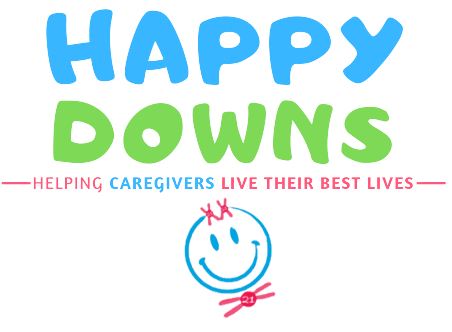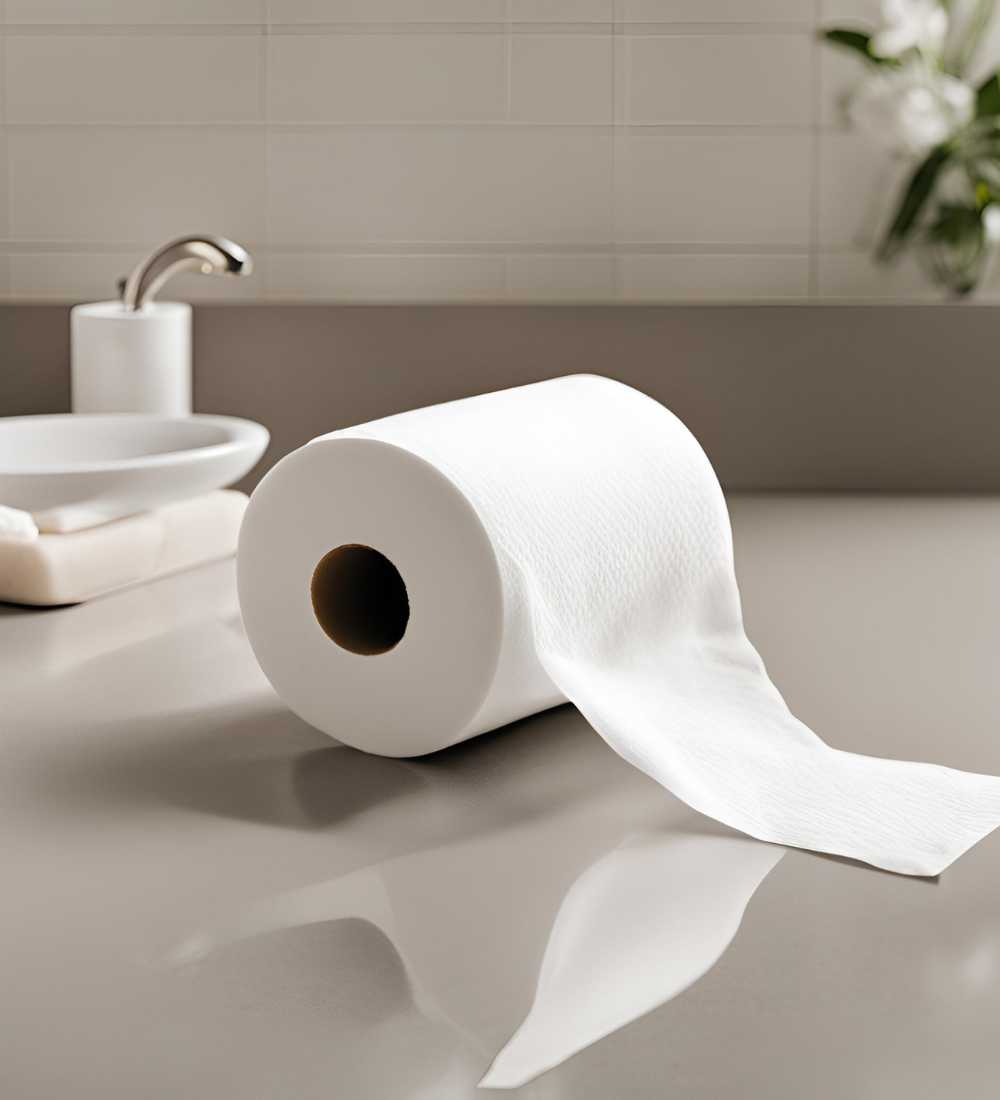Caring for a loved one with Down Syndrome brings immense joy and fulfillment, but it also comes with its unique set of challenges. Among these, establishing and maintaining personal care routines can be a challenging one, yet it is crucial for our loved ones’ overall well-being. A consistent personal care routine not only promotes good health but also fosters a sense of independence and self-esteem. As caregivers, our role is to guide, support, and encourage our loved ones in these daily tasks, ensuring they feel confident and empowered.
Understanding the Importance of Personal Care Routines
Personal care routines are fundamental to the health and happiness of individuals with Down Syndrome. These routines do more than just keep them clean and presentable; they play a vital role in their overall well-being.
Physical Health Benefits
Regular personal care helps prevent infections, skin conditions, and other health issues. Simple routines like daily bathing, proper handwashing, and consistent dental care can ward off illnesses and keep your loved one feeling their best. By maintaining these routines, you are safeguarding their health and setting the foundation for a healthy lifestyle.
Psychological Benefits
Personal care routines boost self-esteem and confidence. When individuals with Down Syndrome feel clean, fresh, and well-groomed, it positively impacts their self-image. This sense of pride can motivate them to take on new challenges and embrace independence. Each small victory in personal care is a step toward greater self-reliance and self-worth.
Social Benefits
Good personal care habits enhance social interactions and acceptance. When your loved one feels confident in their appearance, they are more likely to engage with others and participate in social activities. This can lead to improved relationships and a richer, more fulfilling social life. By supporting their personal care routines, you are helping them build connections and enjoy the company of others.
Personal care routines are not just daily tasks but essential practices that contribute to a happy, healthy, and fulfilling life for your loved one.
Establishing a Routine

Creating and maintaining a personal care routine is a cornerstone of supporting your loved one with Down Syndrome. A well-structured routine provides predictability and a sense of security, making daily tasks more manageable and less stressful.
Consistency is Key
A consistent daily schedule is essential. Regular routines help your loved one know what to expect and when, reducing anxiety and resistance. Start by outlining a daily schedule that includes all personal care activities, such as bathing, brushing teeth, dressing, and grooming. Use a visual schedule with pictures and times to make it easy to follow. This visual aid can be a powerful tool, offering clear and understandable prompts.
Tailoring the Routine
Every individual with Down Syndrome is unique, with their own preferences, strengths, and challenges. Tailor the routine to fit your loved one’s specific needs. Consider their comfort, abilities, and interests when planning the routine. Personalizing the routine not only makes it more effective but also more enjoyable.
Involve your loved one in the planning process. Giving them a sense of control and ownership over their routine can be incredibly empowering. Ask for their input on the order of tasks, the types of products they prefer, and any special steps they like to include. This collaboration fosters independence and makes the routine feel like a team effort rather than a set of imposed tasks.
Creating a Visual Schedule
A visual schedule can be a game-changer. Use pictures, icons, or even photographs of your loved one performing each task. Display the schedule in a prominent place, such as the bathroom or bedroom, where it can serve as a constant reminder and guide. This visual aid not only reinforces the routine but also helps in building a sense of accomplishment as each task is completed.
Building a Positive Atmosphere
Make the routine enjoyable by incorporating elements that your loved one likes. Play their favorite music during bath time, use scented products they enjoy, or turn dressing into a fun game. A positive atmosphere can transform personal care tasks from chores into enjoyable activities, making your loved one more willing and excited to participate.
By establishing a consistent, personalized, and visually guided routine, you provide your loved one with the structure and support they need to succeed in their personal care tasks. This foundation sets the stage for independence, confidence, and a sense of achievement in their daily life.
Practical Tips for Different Aspects of Personal Care
Supporting your loved one with Down Syndrome in their personal care routines involves breaking down each task into manageable steps and making the process as enjoyable as possible. Here are practical tips for various aspects of personal care:
Hygiene
Bathing:
- Start by creating a comfortable and safe bathing environment. Use non-slip mats, bath chairs, or grab bars if needed.
- Turn bath time into a relaxing activity by using warm water, gentle soaps, and perhaps some calming music.
- Break down the bathing process into small, clear steps. Guide them through wetting their body, applying soap, rinsing off, and drying with a towel.
- Encourage independence by allowing them to do as much as they can on their own while you supervise and assist as needed.
Oral Care:
- Choose a toothbrush with a comfortable grip and soft bristles. Consider an electric toothbrush if it makes brushing easier and more effective.
- Use a fluoride toothpaste with a flavor they like. Some individuals with Down Syndrome may have sensory sensitivities, so finding a pleasant flavor can make a big difference.
- Teach them proper brushing techniques, like brushing in small circles and covering all surfaces of the teeth.
- Use visual aids, like a step-by-step chart or a video, to demonstrate the brushing process.
Handwashing:
- Emphasize the importance of washing hands before meals, after using the bathroom, and when they are dirty.
- Teach the correct technique: wet hands, apply soap, scrub all parts of the hands for at least 20 seconds, rinse, and dry with a clean towel.
- Use a handwashing song or a timer to ensure they wash for the recommended time.
Dressing
- Select clothing that is easy to put on and take off, such as items with large buttons, zippers, or Velcro fastenings.
- Break down the dressing process into steps, such as putting on underwear first, then pants, followed by a shirt, and so on.
- Lay out clothes in the order they should be worn. This visual cue can help them understand the sequence.
- Encourage independence by allowing them to choose their own outfits from a pre-selected set of options that are appropriate for the weather and activity.
Grooming
Hair Care:
- Choose easy-to-manage hairstyles that don’t require extensive upkeep. Regular haircuts can help maintain a neat appearance.
- Teach them how to brush or comb their hair, starting from the ends to avoid tangles.
- Use detangling sprays or leave-in conditioners to make hair care easier.
Nail Care:
- Trim nails regularly to keep them clean and prevent accidental scratches.
- Use a nail clipper with a comfortable grip and provide gentle guidance on how to use it safely.
- If they are uncomfortable with nail trimming, consider doing it after a bath when nails are softer.
Skin Care:
- Individuals with Down Syndrome may have sensitive skin. Use gentle, hypoallergenic products to avoid irritation.
- Teach them to apply moisturizer daily, especially after bathing, to keep their skin hydrated.
- Address any specific skin issues, such as dryness or eczema, with appropriate treatments recommended by a healthcare professional.
Supporting your loved one in these personal care tasks requires patience, encouragement, and a step-by-step approach. By making these routines manageable and enjoyable, you can help them develop the skills and confidence needed to take care of themselves effectively.
Teaching and Reinforcing Personal Care Skills

Helping your loved one with Down Syndrome develop personal care skills involves patience, positive reinforcement, and consistent practice. Here are some effective strategies:
Modeling and Demonstration
- Show How to Perform Tasks: Demonstrate each personal care task step-by-step. Use clear and simple language to describe what you’re doing.
- Use Videos and Visual Aids: Visual aids such as instructional videos or illustrated charts can reinforce learning. Watching others perform tasks can make it easier for them to understand and imitate the actions.
Positive Reinforcement
- Praise Efforts and Progress: Celebrate small successes and provide positive feedback for their efforts. Encouragement builds confidence and motivates them to keep trying.
- Use Reward Systems: Implement a reward system where they earn small rewards or privileges for completing tasks. This can be as simple as a sticker chart or a favorite activity as a reward for consistent effort.
Patience and Practice
- Allow Time for Learning: Understand that mastering personal care tasks takes time. Be patient and give them the time they need to learn and practice each step.
- Repeat Steps as Needed: Repetition is key to learning. Don’t hesitate to go over steps multiple times until they feel comfortable and confident in performing them.
Addressing Behavioral Challenges
Managing behavioral challenges is a critical aspect of supporting personal care routines for individuals with Down Syndrome. Here are strategies to help address and overcome these challenges:
Understanding Triggers
- Identify Triggers: Pay attention to what causes resistance or anxiety during personal care tasks. Common triggers might include sensory sensitivities, fear of water, or discomfort with certain products.
- Adapt Strategies to Reduce Stress: Once you identify triggers, adjust your approach to minimize stress. For example, if they are sensitive to water temperature, ensure it’s just right before starting a bath.
Creating a Calm Environment
- Set Up a Distraction-Free Space: Ensure the environment is calm and free of distractions. A quiet, clutter-free space can help them focus on the task at hand.
- Use Calming Techniques: Incorporate calming techniques such as playing soft music, using soothing scents like lavender, or practicing deep breathing exercises together.
Making Routines Enjoyable
- Turn Tasks into Fun Activities: Make personal care tasks enjoyable by incorporating elements they like. Sing songs during handwashing, use colorful and pleasant-smelling products, or make a game out of dressing.
- Involve Them in Choices: Allow your loved one to make choices within their routine. Let them pick their toothbrush color, choose their shampoo scent, or decide the order of tasks. Having a say in their routine can reduce resistance and increase cooperation.
Consistency and Routine
- Maintain a Consistent Schedule: Consistency helps reduce anxiety. Stick to the same routine daily so they know what to expect.
- Visual and Auditory Cues: Use visual schedules or timers to signal the start and end of tasks. These cues can provide a sense of structure and help them stay on track.
By understanding triggers, creating a calming environment, and making routines enjoyable, you can effectively address behavioral challenges and help your loved one feel more comfortable and cooperative during personal care activities.
Utilizing Assistive Tools and Technologies

Leveraging assistive tools and technologies can significantly enhance the personal care routines of individuals with Down Syndrome. These aids can promote independence, make tasks easier, and ensure that routines are followed consistently.
Adaptive Equipment
- Specialized Toothbrushes: Consider using toothbrushes with ergonomic handles, electric toothbrushes, or those with built-in timers to ensure proper brushing time.
- Dressing Aids: Adaptive clothing with features like magnetic buttons, Velcro fastenings, and elastic waistbands can make dressing easier and promote independence. Dressing aids like button hooks and zipper pulls can also be helpful.
- Bathing Aids: Non-slip mats, bath chairs, grab bars, and handheld showerheads can provide safety and comfort during bathing. Bath mitts and long-handled sponges can help with washing hard-to-reach areas.
- Grooming Tools: Nail clippers with magnifying glasses, easy-grip hairbrushes, and skin care applicators can simplify grooming tasks.
Technology
- Reminder Apps: Use smartphone or tablet apps that provide visual and auditory reminders for personal care tasks. These apps can send alerts for activities like brushing teeth, taking a bath, or applying moisturizer.
- Instructional Videos: Create or find videos that demonstrate each step of personal care tasks. Watching these videos can help reinforce learning and provide a visual guide.
- Voice Assistants: Devices like Amazon Echo or Google Home can be set up to provide reminders and guide your loved one through their routine with step-by-step instructions.
- Timers: Use visual or auditory timers to signal how long a task should take, such as a two-minute timer for brushing teeth. This helps in maintaining consistency and ensures tasks are completed adequately.
Visual and Auditory Aids
- Visual Schedules: Create visual schedules with pictures or icons representing each step of the personal care routine. Place these schedules in prominent locations like the bathroom or bedroom.
- Picture Guides: Use picture guides that show each step of a task. For example, a laminated sheet with images depicting the process of handwashing or dressing can be a helpful reference.
- Auditory Prompts: Record verbal instructions for each task that can be played back as needed. These prompts can provide reassurance and guidance, especially when you’re not present.
Adaptive Products
- Personal Care Kits: Assemble kits with all necessary items for specific tasks. For example, a dental care kit with a toothbrush, toothpaste, and floss, or a grooming kit with a hairbrush, nail clipper, and moisturizer. Keeping these items organized and accessible makes the routine smoother.
- Easy-to-Use Dispensers: Use pump bottles or squeeze tubes for products like shampoo, conditioner, soap, and moisturizer. These are easier to handle than traditional bottles and help prevent spills and waste.
Incorporating assistive tools and technologies into personal care routines can empower your loved one with Down Syndrome, fostering independence and confidence. These aids provide the necessary support to ensure that personal care tasks are completed effectively and with ease.
Involving Healthcare Professionals
Incorporating healthcare professionals into the personal care routines of individuals with Down Syndrome is crucial for addressing specific needs and ensuring overall well-being. Regular check-ups and professional guidance can make a significant difference in maintaining health and developing effective care strategies.
Regular Check-Ups
- Medical Visits: Schedule regular check-ups with your loved one’s primary care physician. These visits are essential for monitoring their overall health, managing any chronic conditions, and staying up-to-date with vaccinations.
- Dental Appointments: Regular dental visits are important for maintaining oral health. Ensure that your loved one sees a dentist who is experienced in working with individuals with Down Syndrome, as they may have unique dental care needs.
- Vision and Hearing Checks: Routine vision and hearing screenings are vital, as individuals with Down Syndrome may have a higher risk of related issues. Early detection and intervention can improve their quality of life.
Working with Healthcare Providers
- Customized Care Plans: Collaborate with healthcare providers to develop personalized care plans tailored to your loved one’s specific needs. These plans should include recommendations for personal care routines, dietary needs, exercise, and any necessary medical treatments.
- Medication Management: If your loved one takes medication, ensure that you have a clear understanding of the dosage, timing, and any potential side effects. Use pill organizers and set reminders to help manage their medication schedule effectively.
- Nutritional Guidance: Consult with a dietitian to create a balanced and nutritious diet plan. Proper nutrition plays a crucial role in overall health and can impact energy levels, mood, and the ability to perform personal care tasks.
Seeking Professional Guidance
- Occupational Therapists (OTs): OTs can provide valuable insights and strategies for developing personal care skills. They can recommend adaptive tools and techniques to make tasks easier and more manageable. OTs can also create individualized plans to enhance motor skills and independence.
- Behavioral Therapists: If your loved one exhibits behavioral challenges during personal care routines, a behavioral therapist can help identify triggers and develop strategies to address them. They can provide techniques for managing anxiety, improving cooperation, and building positive behaviors.
- Speech Therapists: For individuals with communication difficulties, speech therapists can help improve language skills and communication methods. Effective communication can reduce frustration and enhance cooperation during personal care activities.
Family and Community Support
- Support Groups: Join support groups for families and caregivers of individuals with Down Syndrome. Sharing experiences, challenges, and solutions with others who understand your journey can be incredibly helpful.
- Community Resources: Utilize community resources such as local Down Syndrome associations, disability services, and recreational programs. These organizations often provide valuable information, support, and activities that can enhance your loved one’s social and personal development.
Collaboration and Communication
- Team Approach: Approach personal care as a team effort involving family members, healthcare providers, and therapists. Regular communication and collaboration ensure that everyone is on the same page and working towards common goals.
- Feedback and Adjustment: Continuously assess and adjust personal care routines based on feedback from your loved one and healthcare professionals. Be open to trying new strategies and making changes to improve effectiveness and comfort.
By involving healthcare professionals and leveraging their expertise, you can create a comprehensive and supportive environment for your loved one’s personal care routines. This collaborative approach ensures that they receive the best possible care, fostering their health, independence, and overall quality of life.
Personal Care for Individuals with Down Syndrome
Supporting personal care routines for your loved one with Down Syndrome is a journey of patience, dedication, and love. By establishing consistent routines, tailoring them to individual needs, and utilizing practical strategies and tools, you can make these daily tasks more manageable and enjoyable. Remember, every small step and achievement is a significant milestone in promoting their independence and self-esteem.
Involving healthcare professionals and seeking guidance from occupational, behavioral, and speech therapists can provide valuable insights and personalized strategies to address specific challenges. Regular check-ups and professional support ensure that your loved one’s health and well-being are always prioritized.
As caregivers, our role is vital in fostering a nurturing and empowering environment. Celebrate the progress, no matter how small, and continuously adapt routines to meet evolving needs. Our unwavering support and encouragement make a profound difference in their ability to thrive and enjoy a fulfilling life.
Please share your experiences, tips, and success stories in the comments. Together, we can create a supportive community that uplifts and inspires each other in caring for our loved ones with Down Syndrome.







